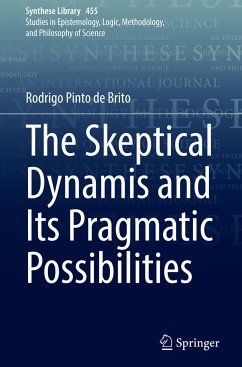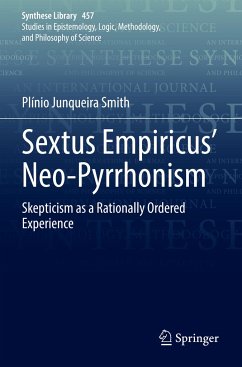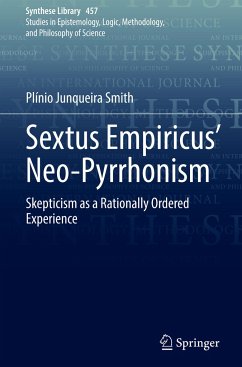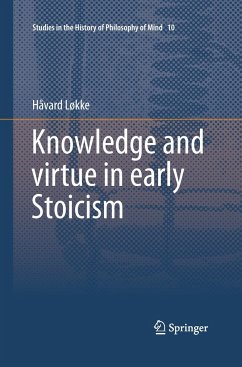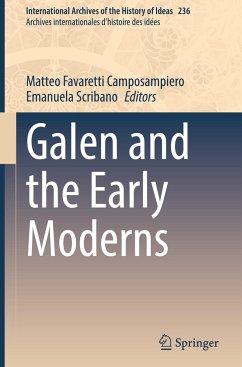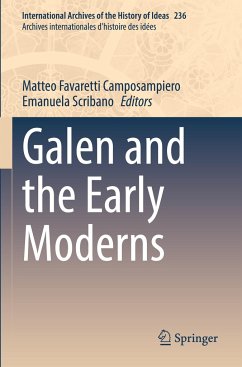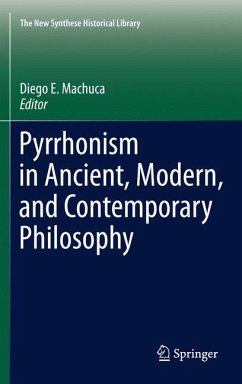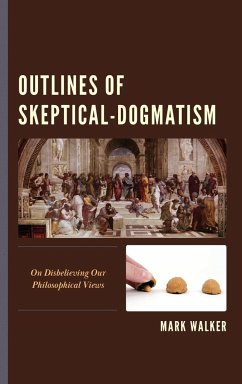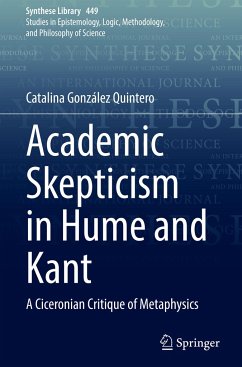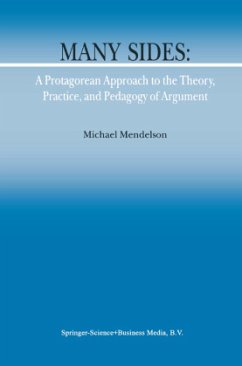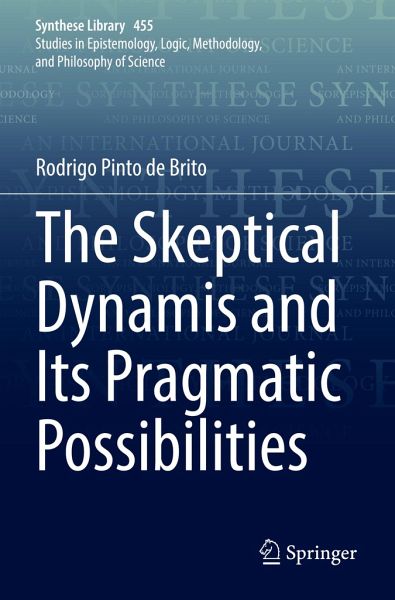
The Skeptical Dynamis and Its Pragmatic Possibilities
Versandkostenfrei!
Versandfertig in 6-10 Tagen
91,99 €
inkl. MwSt.
Weitere Ausgaben:

PAYBACK Punkte
46 °P sammeln!
This monograph reevaluates a school of thought concerned with truth and inquiry. It examines the critique which asserts that it's not possible to live this Early Greek philosophy in practice. The investigation also details new discoveries on the reception of Skepticism by Empiricist Doctors, Early Greek Fathers, Medieval Arabic Thinkers, and Renaissance Thinkers.The author takes a careful look at the apraxia argument and how critics used it. He shows how anti-skeptical arguments rose in different stages of the development of the Skepticism. Coverage also details how the skeptics replied and ga...
This monograph reevaluates a school of thought concerned with truth and inquiry. It examines the critique which asserts that it's not possible to live this Early Greek philosophy in practice. The investigation also details new discoveries on the reception of Skepticism by Empiricist Doctors, Early Greek Fathers, Medieval Arabic Thinkers, and Renaissance Thinkers.
The author takes a careful look at the apraxia argument and how critics used it. He shows how anti-skeptical arguments rose in different stages of the development of the Skepticism. Coverage also details how the skeptics replied and gave more pragmatic coherence to their philosophy, starting with the proto-skeptics and continuing with the works of Sextus Empiricus. Readers will learn how skepticism endured despite the criticisms, becoming a coherent response to dogmatic philosophies such as Stoicism.
The investigation also analyzes the two common approaches that philosophers have used to interpret Sextan philosophy. It considers their benefits as well as defects. In the process, the author presents an original way of interpreting Sextan thought, which the author calls the "suburban interpretation". He then applies this "middle way" to two works: Against the Grammarians and Against the Rhetoricians. Overall, the book provides readers with an insightful look at how this school of thought survived and spread throughout the ages.
The author takes a careful look at the apraxia argument and how critics used it. He shows how anti-skeptical arguments rose in different stages of the development of the Skepticism. Coverage also details how the skeptics replied and gave more pragmatic coherence to their philosophy, starting with the proto-skeptics and continuing with the works of Sextus Empiricus. Readers will learn how skepticism endured despite the criticisms, becoming a coherent response to dogmatic philosophies such as Stoicism.
The investigation also analyzes the two common approaches that philosophers have used to interpret Sextan philosophy. It considers their benefits as well as defects. In the process, the author presents an original way of interpreting Sextan thought, which the author calls the "suburban interpretation". He then applies this "middle way" to two works: Against the Grammarians and Against the Rhetoricians. Overall, the book provides readers with an insightful look at how this school of thought survived and spread throughout the ages.





